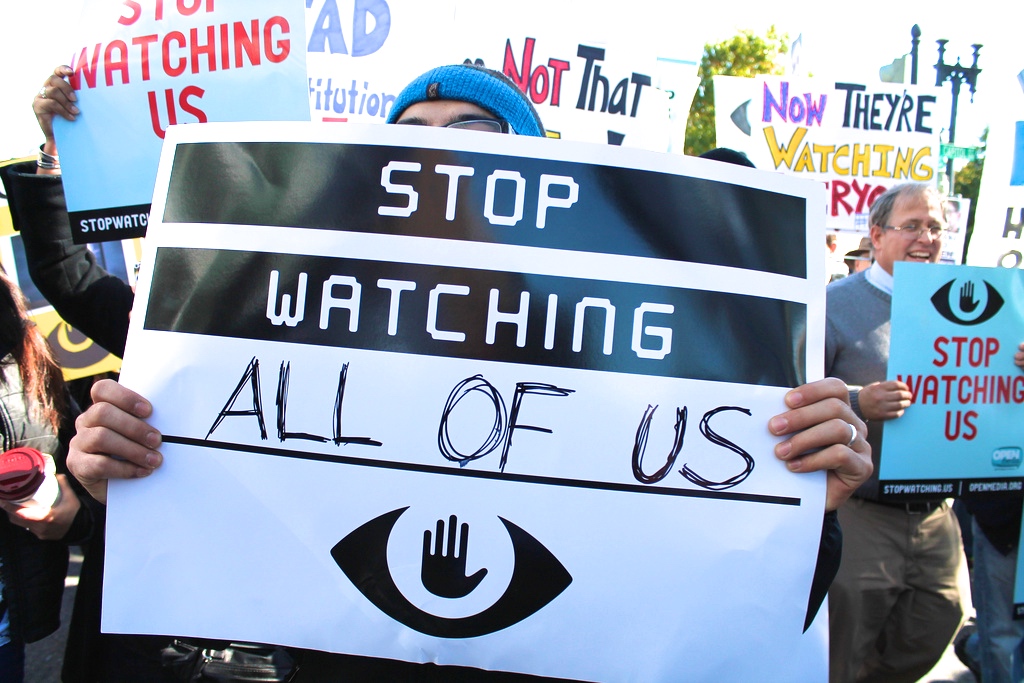
While the U.S. federal government says all public digital communications can be obtained by agencies like the FBI, the California State Assembly believes otherwise. In a move late last week aimed at giving citizens more privacy over their electronic communications, lawmakers passed a digital privacy bill that will prevent government access without a proper warrant from a judge.
The legislation "would prohibit a government entity from compelling the production of or access to electronic communication information or electronic device information, as defined, without a search warrant, wiretap order, order for electronic reader records, or subpoena issued pursuant under specified conditions, except for emergency situations, as defined," according to the version of the bill passed by the assembly.
The California Electronic Privacy Act (CalECPA) SB 178 is co-sponsored by the American Civil Liberties Union, Electronic Frontier Foundation, California Newspaper Publishers Association and tech companies such as Apple, Facebook, Google (Alphabet) and Twitter.
The bill now heads to the California State Senate for concurrence before making its way to Governor Jerry Brown's desk to become law. However, uncertainty still remains over whether the governor will ultimately approve the bill. Brown's office told Occupy.com that due to its responsibility passing a number of bills in the first 10 days of September, it could take a little time before the digital privacy legislation becomes law.
Brown is no stranger to vetoing digital privacy bills. Three previous bills introduced between 2011 and 2013 were scuttled by the governor. Since those vetoes, the U.S. Supreme Court ruled in Riley v. California that law enforcement must obtain a warrant before accessing data on a person's mobile phone after an arrest. But the co-author of SB 178, Assemblyman Mark Leno, believes privacy should be paramount for California and its residents.
Leno told Occupy.com that "current laws are behind the times and do not represent the advances that have been made in technology. This is the right step for California, our residents and the privacy they deserve on a daily basis."
Leno said what's crucial is to ensure that "the personal information of Californians is adequately protected and law enforcement have the tools to fight crime in the digital age." He added that he hopes the bill will create "the right balance to protect privacy, spur innovation and safeguard public safety."
Digital security has become a hot topic in California, like most places in recent years since revelations by whistleblower Edward Snowden revealed the massive surveillance program conducted by the National Security Agency against American citizens. Despite the information that was released to the public, Leno and others in the state say more work remains to be done to safeguard residents from government eavesdropping in the future.
SB 178 will permit government agencies to obtain electronic information in emergency situations "involving danger of death or serious physical injury to a person." But in order to gain electronic information on individuals in the case of standard investigations, agencies will be required to file an application for a warrant with a court or obtain a motion seeking approval for such actions. If the application is not approved, the court can order the information obtained to be destroyed.
“Senator Leno and I bridge the gap between progressives and conservatives to put Californians first and reinforce our constitutional protections,” State Senator Joel Anderson, co-author of SB 178, said in a statement. “Our bipartisan bill protects Californians’ basic civil liberties as the Fourth Amendment and the California Constitution intended.”
The bill comes as tech companies have reported an increase in the number of government requests for information, leading to Silicon Valley's overwhelming support for the legislation with a number of companies calling on the governor to sign it into law.
Google has seen a 180 percent jump in law enforcement demands for consumer data in the past five years. Last year, AT&T received 64,000 demands – a 70 percent increase in a single year. Verizon reports that only one-third of its requests had a warrant, and last year Twitter and Tumblr received more demands from California than any other state.
"California has led the nation in technological innovation for decades," said Lee Tien, senior staff attorney at the Electronic Frontier Foundation. "Now it’s time for our laws to catch up. Californians deserve warrant protection for their digital records."
Support for the legislation is strong across the state, with 82 percent of voters saying government should be required to present a warrant prior to gaining access to citizens' emails or other Internet activity. Similarly, close to 79 percent support a warrant requirement for tracking cell phones, and 77 percent support warrants for accessing text messaging records.
“The California Newspaper Publishers Association urges support of SB 178, which safeguards a newspaper's ability to gather and report news by protecting journalists and their sources from unwarranted surveillance,” said Nikki Moore, staff attorney with CNPA.
If the bill is signed by the governor, California will join Maine, Texas, Virginia and Utah introducing stricter electronic communication privacy laws.
3 WAYS TO SHOW YOUR SUPPORT
- Log in to post comments
















